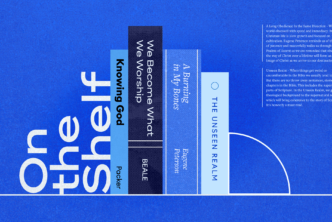
During his life lifetime Schlatter faced a real uphill battle; being conservative during those days was not something that was always praised, especially among the major universities in Germany. When Schlatter was first hired onto the theology faculty at Bern he was not welcomed warmly. In some ways the conservative Christians in Germany forced the faculty of Bern to hire a conservative and Schlatter happened to be the the lucky man. While there, he was often ignored and constantly informed that his presence at Bern was not welcomed. Thankfully this did not faze Schlatter, even when a permanent spot on the faculty meant scoring higher than normal on exams than what was normally the case. Schlatter let his scholarship and hard work do his talking for him, and this eventually led his to the recognition that he was truly a gifted academic.
Towards the final years of his life the the world was spiraling towards a second World War. Schlatter had stood behind the lectern of some of Europe’s most prestigious universities, authored important scholarly monographs, and ministered to students and parishioners alike. But his final days were spent in prayer and agony for the German church, which he feared was being swallowed up by fascism. On the morning of May 19, 1938, at the age of 85, Adolf Schlatter entered into the eternal rest of his Savior, whom he treasured and proclaimed faithfully all his life.
Since his death in 1938, Schlatter’s contribution to biblical scholarship has remained relatively unknown to many English-speaking evangelicals. While the works of other important German scholars have enjoyed a wider audience among English-language readers, Schlatter’s writings have remained largely untranslated. In the latter part of the 20th century, Schlatter’s contribution to New Testament theology and exegesis has experienced an awakening of sorts among American evangelicals, and this is a great thing for us all. Some of his most important works, like his two-volume New Testament Theology, have since been translated into English and given a wider audience, bringing his contribution to New Testament studies into the foreground of mainline evangelicalism.




